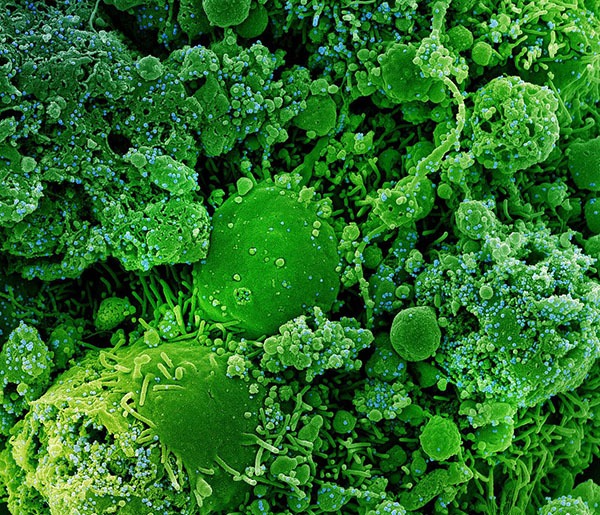IRP scientists identify mechanism that may influence infectivity of SARS-CoV-2 variants
Enzyme process alters spike protein function
Scientists at the National Institutes of Health have found that a process in cells may limit infectivity of SARS-CoV-2, and that mutations in the alpha and delta variants overcome this effect, potentially boosting the virus’s ability to spread. The findings were published online in the Proceedings of the National Academy of Sciences. The study was led by Kelly Ten Hagen, Ph.D., a senior investigator at NIH’s National Institute of Dental and Craniofacial Research (NIDCR).
Since the coronavirus pandemic began in early 2020, several more-infectious variants of SARS-CoV-2, the virus that causes COVID-19, have emerged. The original, or wild-type, virus was followed by the alpha variant, which became widespread in the United States in early 2021, and the delta variant, which is the most prevalent strain circulating today. The variants have acquired mutations that help them spread and infect people more easily. Many of the mutations affect the spike protein, which the virus uses to get into cells. Scientists have been trying to understand how these changes alter the virus’s function.
“Throughout the pandemic, NIDCR researchers have applied their expertise in the oral health sciences to answer key questions about COVID-19,” said NIDCR Director Rena D’Souza, D.D.S., Ph.D. “This study offers fresh insights into the greater infectivity of the alpha and delta variants and provides a framework for the development of future therapies.”

Colorized scanning electron micrograph of chronically infected and partially lysed cells (green) infected with a variant strain of SARS-CoV-2 virus particles (blue), isolated from a patient sample.
This page was last updated on Friday, January 21, 2022